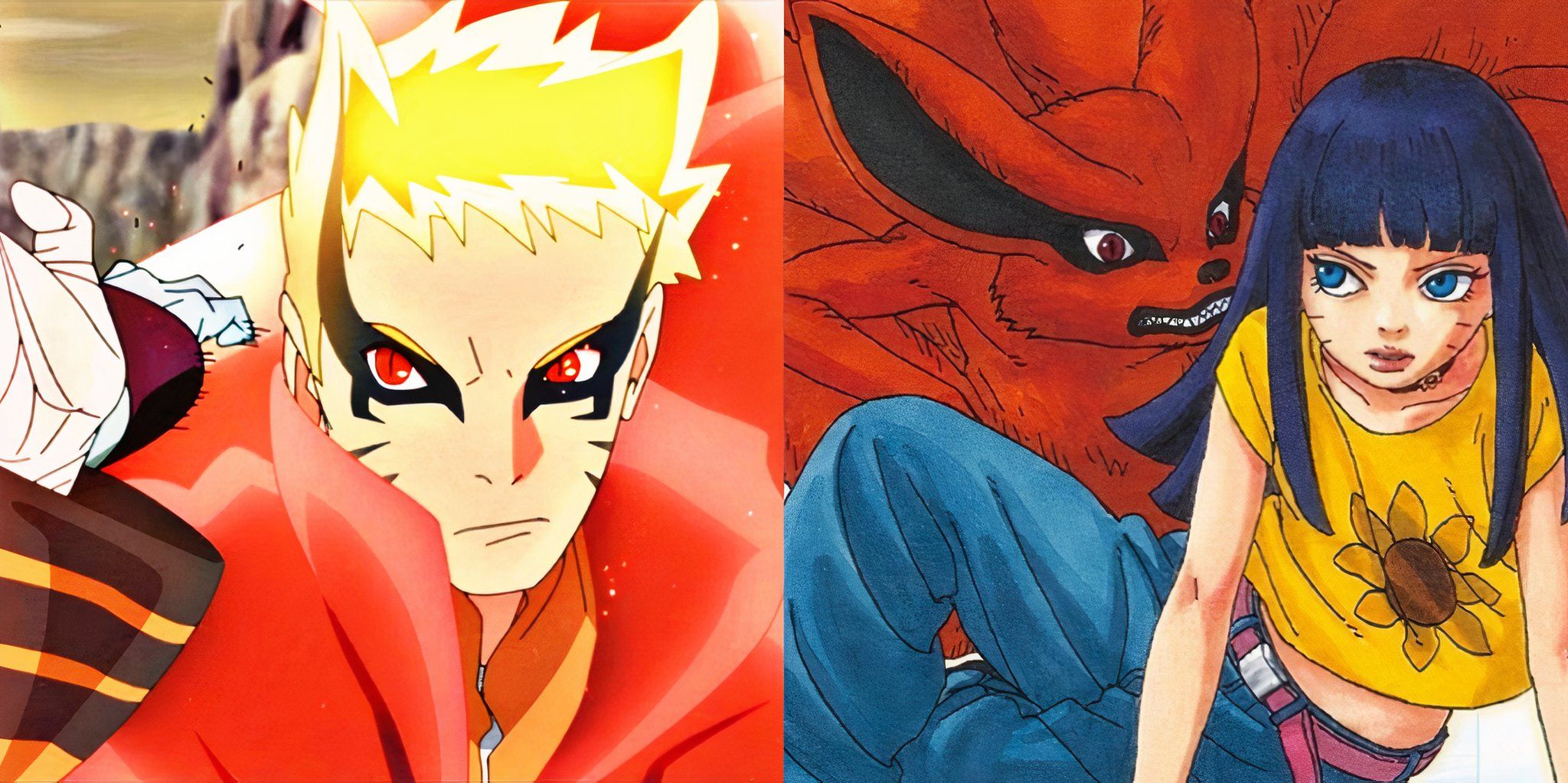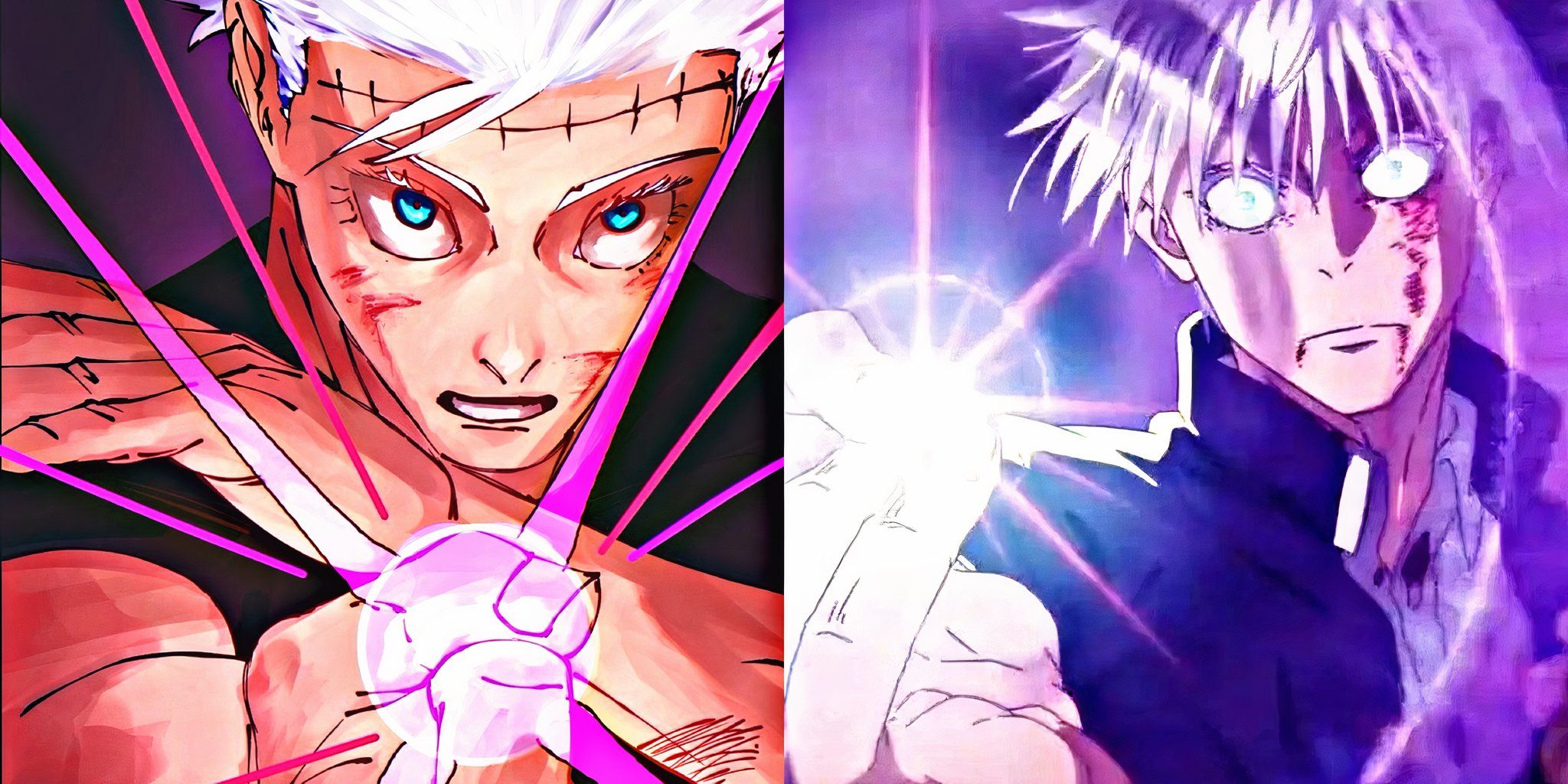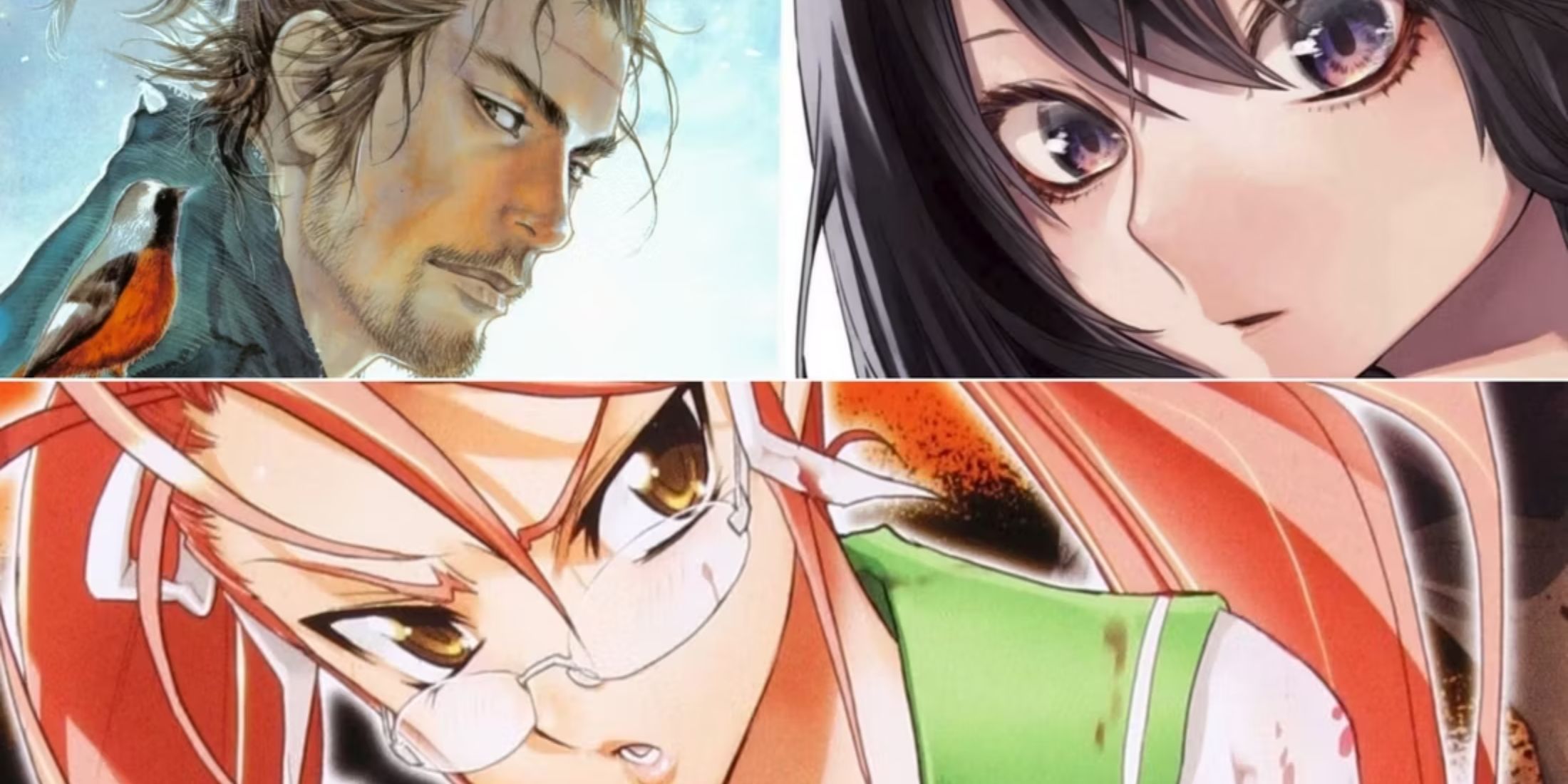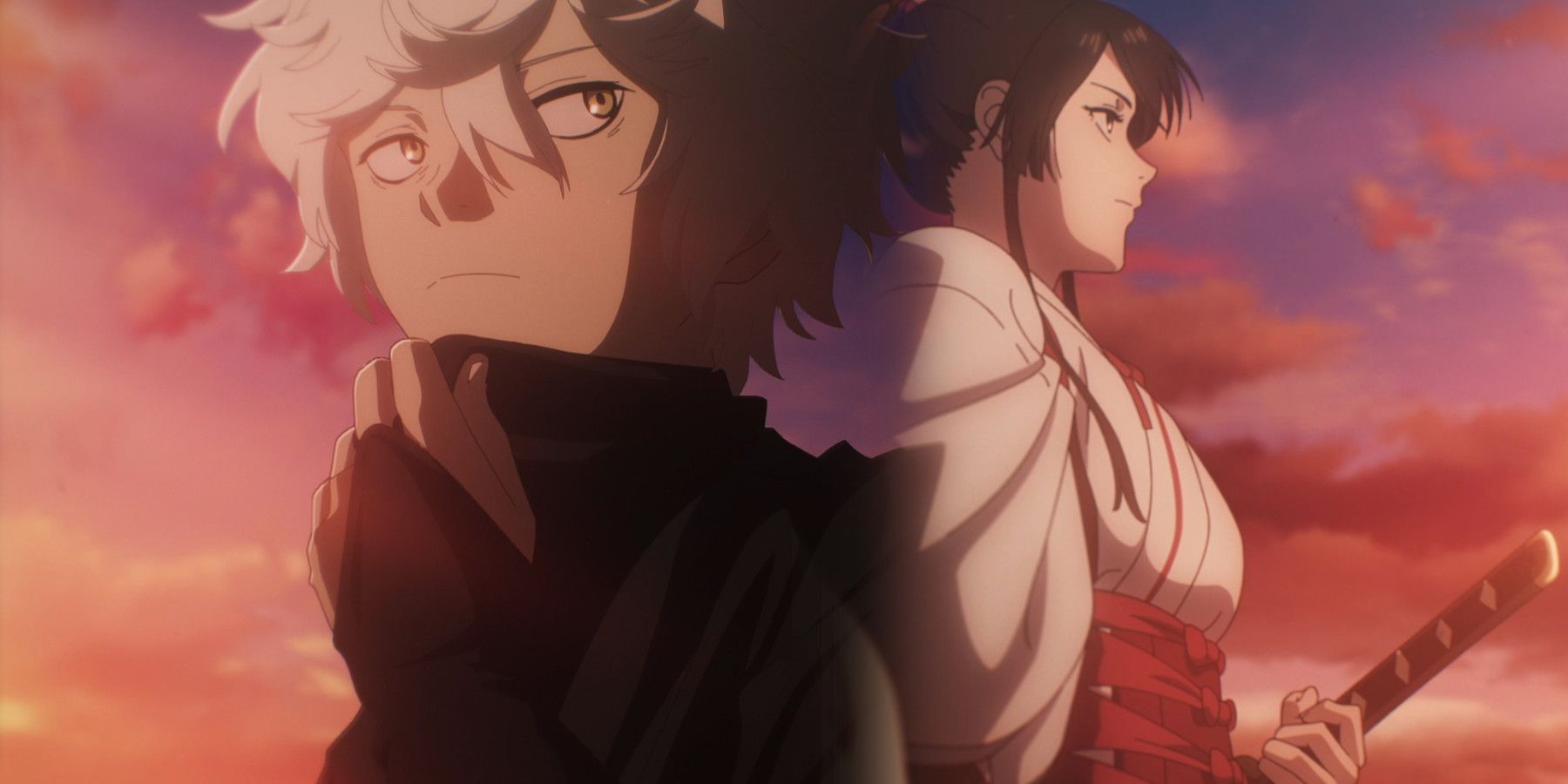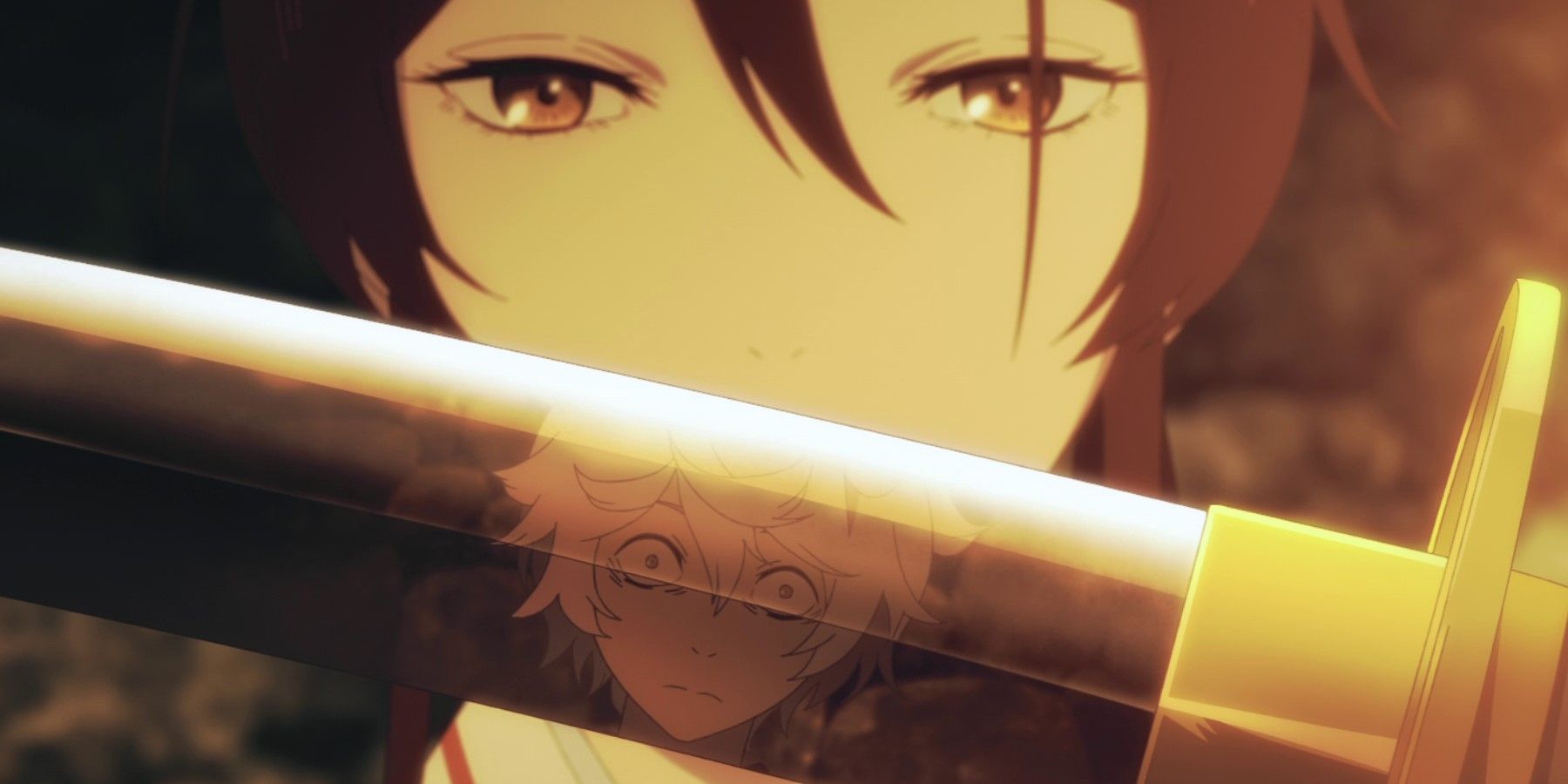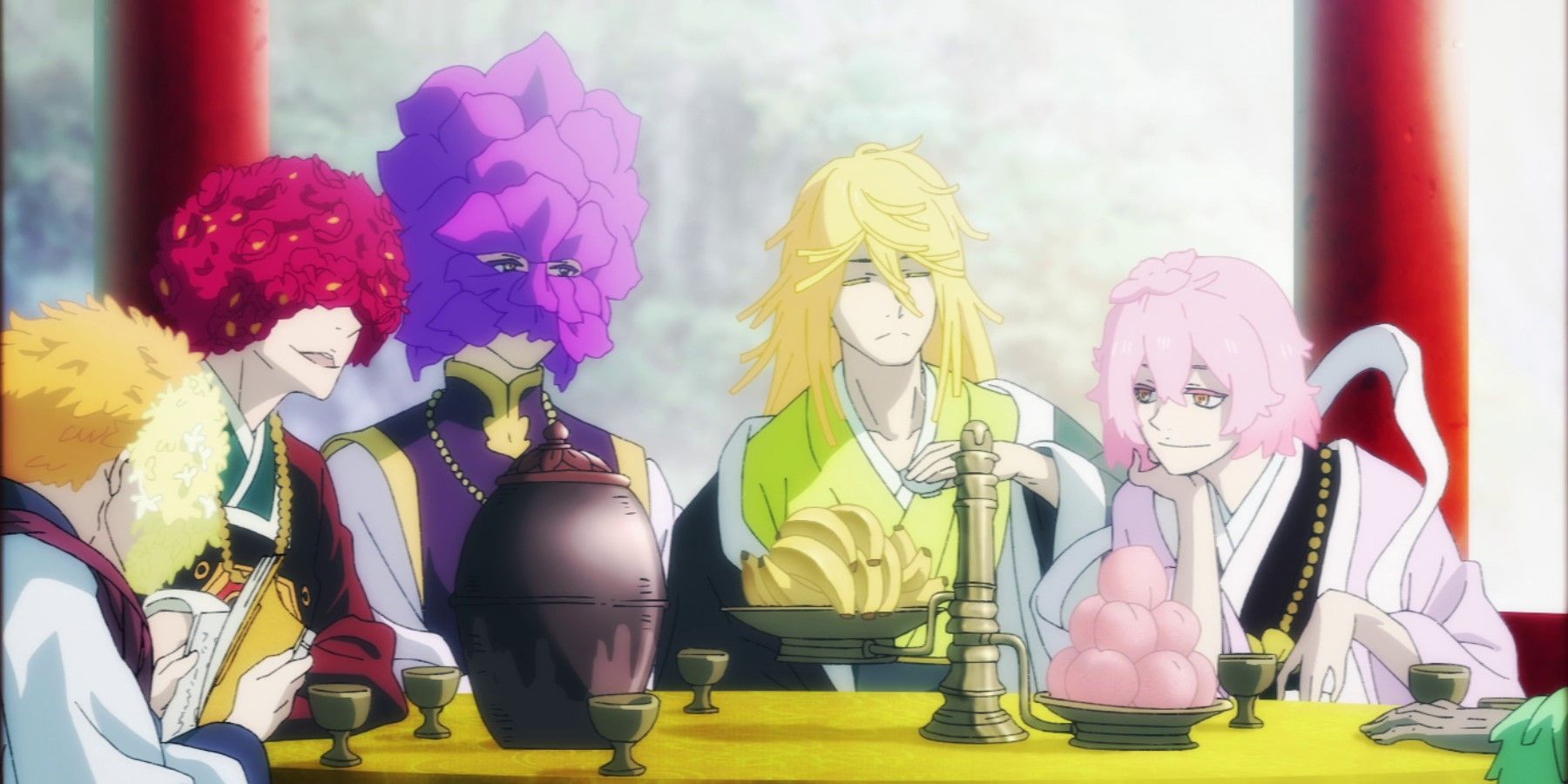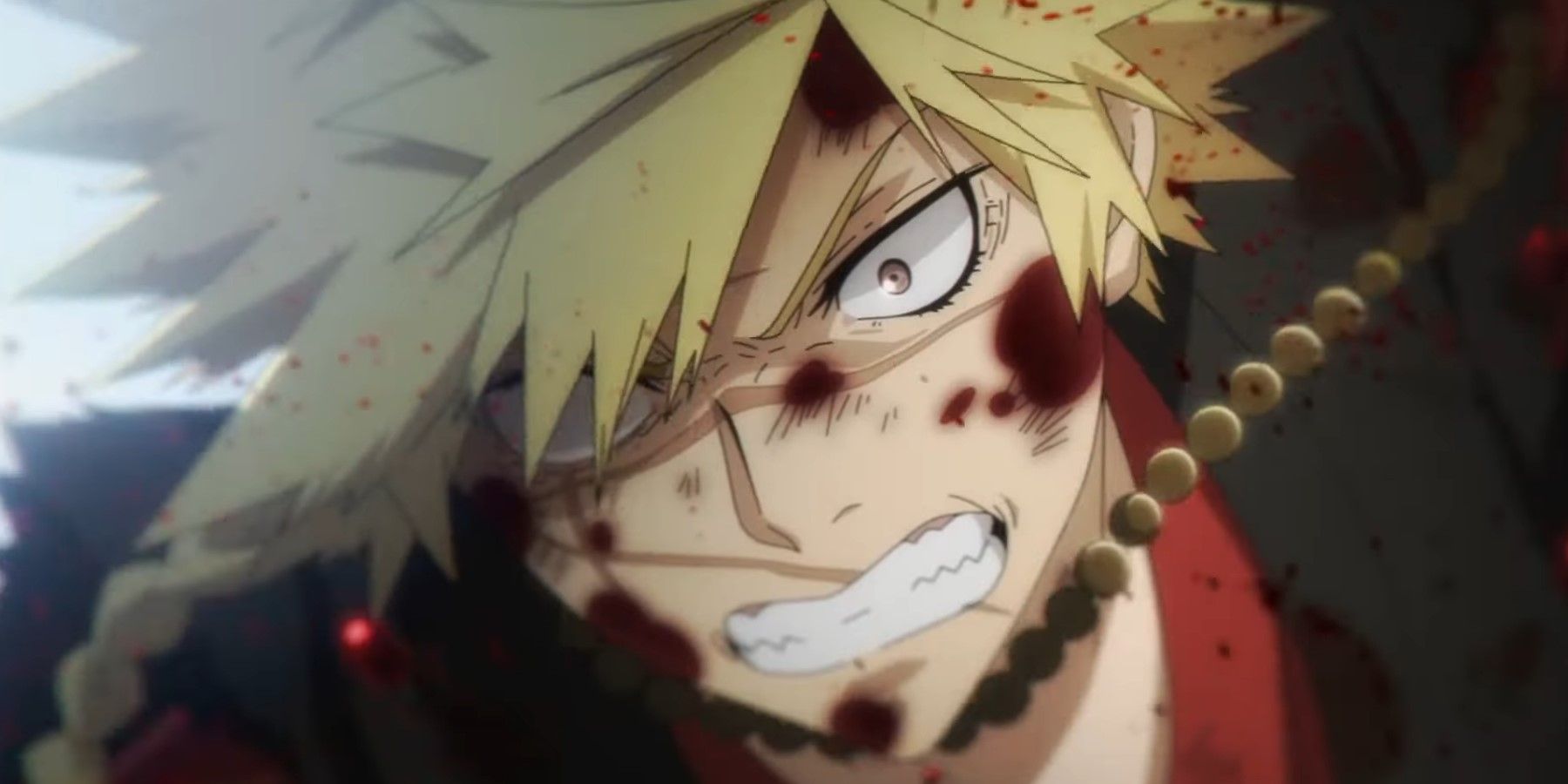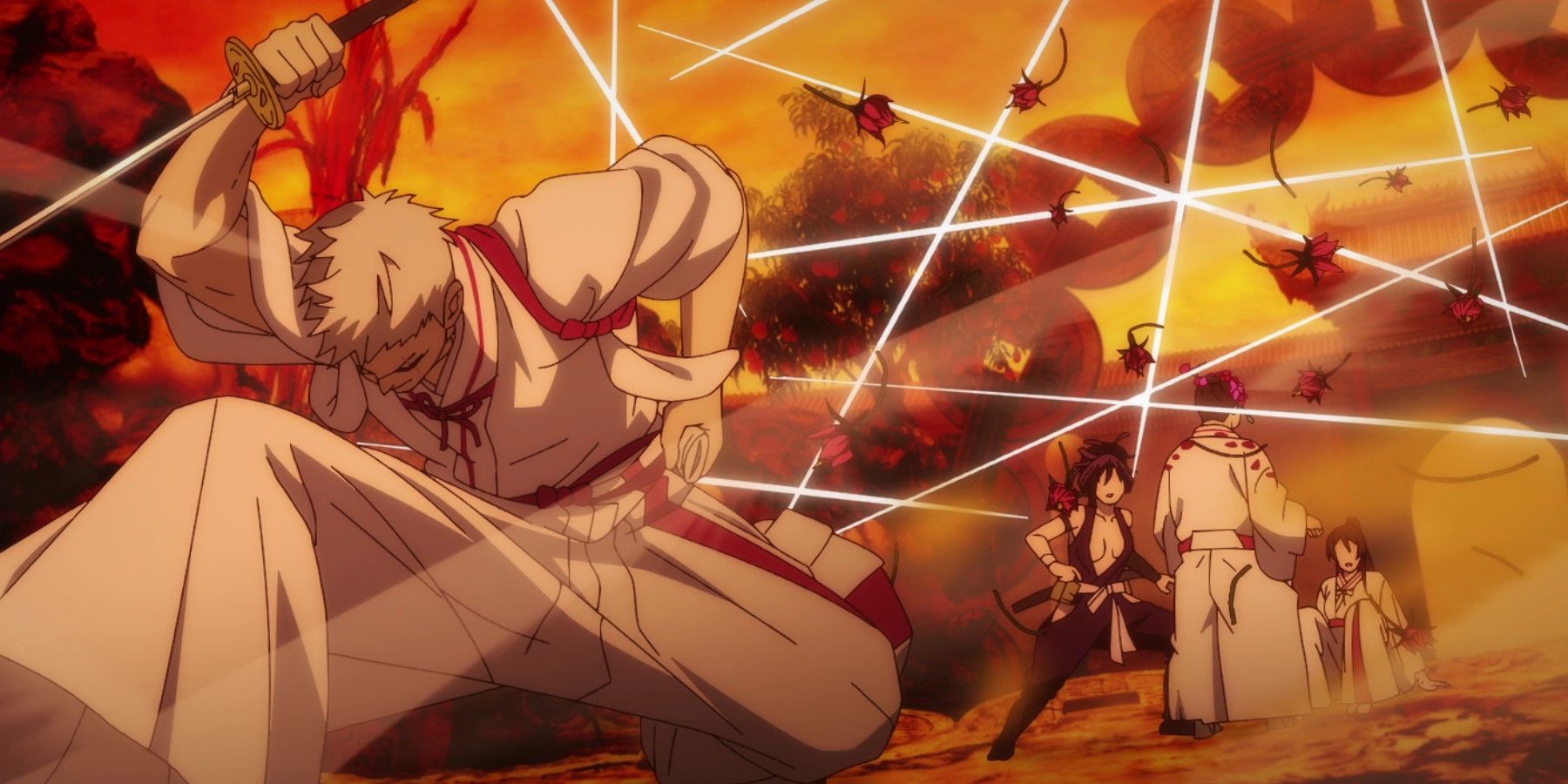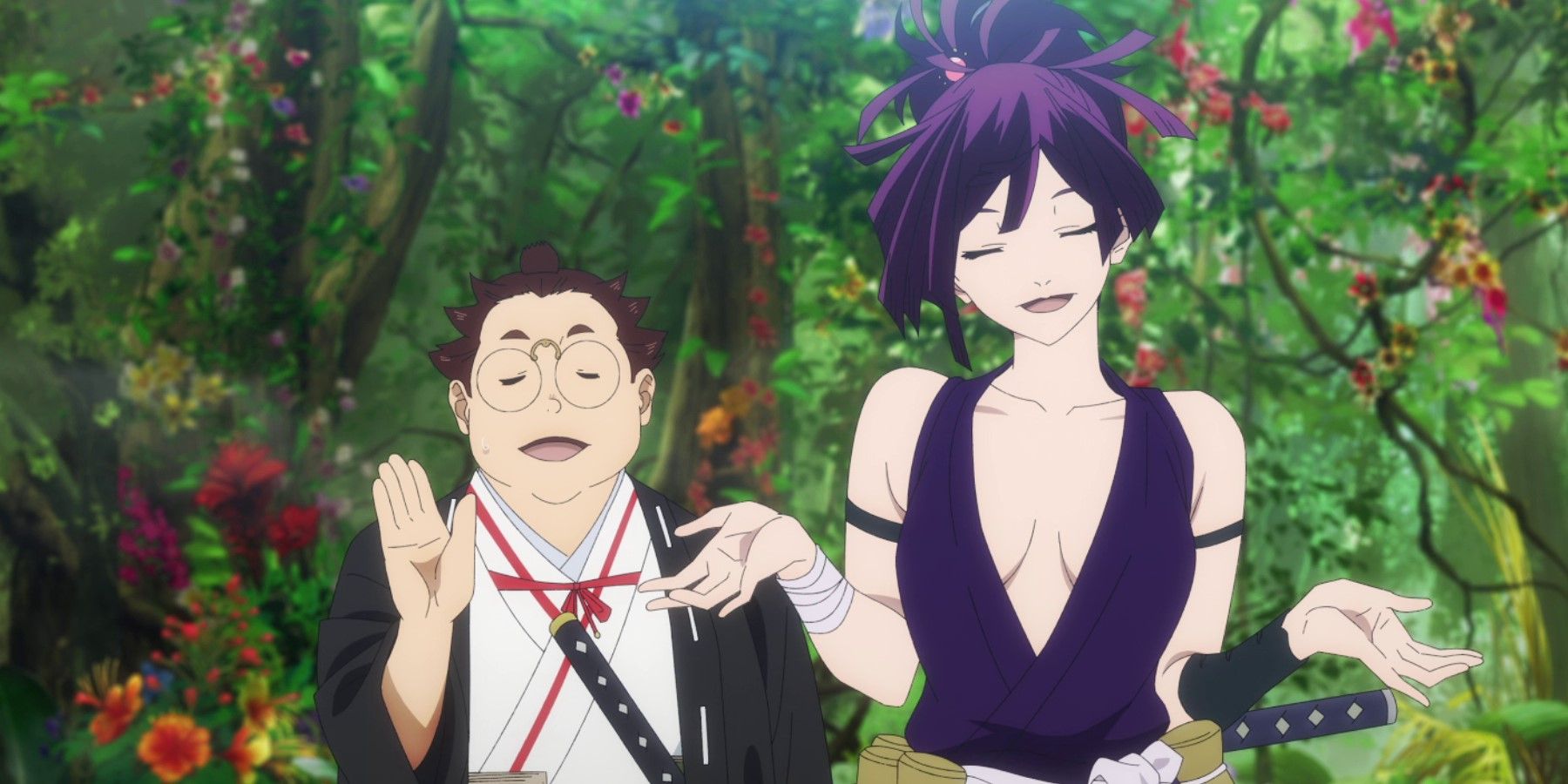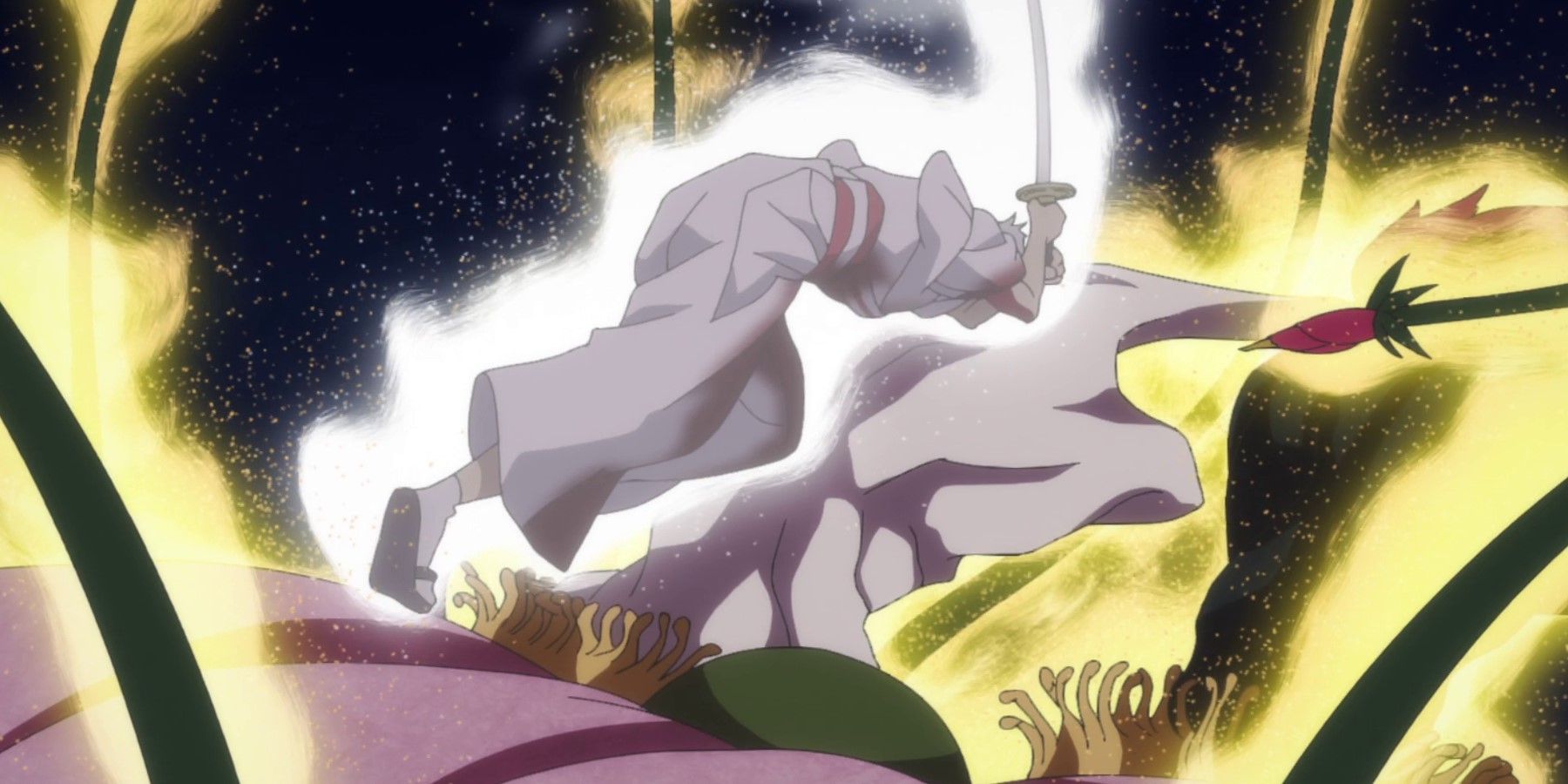Warning: This contains spoilers for Season 1 of Hell's Paradise: Jigokuraku, now available to stream on Crunchyroll.
Hell’s Paradise: Jigokuraku captivated audiences this past Spring thanks to a large cast of colorful characters trying to survive one island’s natural horrors. But part of what makes the story's progression so fascinating is the seemingly grounded way in which it approaches its power system, the threat of the antagonists, and how the characters adapt to said threat.
Jigokuraku follows a group of death row inmates - along with executioners surveying them - sent to the island of Shinsenkyo to retrieve an elixir that can grant immortality. Whoever finds the elixir will be awarded a pardon, something that infamous ninja Gabimaru the Hollow would do anything to retrieve, so he can return to his wife. From the get-go, the inmates are all highly skilled, possessing the kinds of quirks that make them perfect for the expedition. The same goes for the executioners, the Asaemon, who are trained to the absolute pinnacle of swordsmanship. Only Gabimaru, with his resilience to execution, and Rokurouta, with his towering form and frightening strength, immediately strike the audience as superhuman.
Jigokuraku’s Grounded Setup
Based solely on the internal logic of Season 1’s first half, it’s fairly grounded, wherein the capacity for superhuman ability is limited to those with particular backgrounds. Gabimaru comes from a highly mysterious ninja clan whose leader is said to be immortal and that made him nigh un-killable in return. And Rokurouta appears to simply be special.
There’s a difference between something being realistic and grounded. Realism suggests a story following the same logic that constrains people in the real world. On the contrary, something that is grounded is limited by internal logic which can allow for elements that are unrealistic but feel comparably believable.
In Jigokuraku, the characters are agile and powerful, but on the whole, they aren't indestructible. This is accentuated by the setting and the threats within. Gantetsusai is a formidable swordsman, but it only took one bite from one of Shinsenkyo’s grotesque monsters for him to have to sever his left hand. Eizen, the highest-ranked Asaemon, was killed in an instant by Rokurouta.
These early deaths and visceral moments all serve to emphasize that however powerful these characters were in the “regular” world, they would need something completely different in order to survive Shinsenkyo. Nowhere is this more evident than in the first encounters with the Tensen, the true antagonists of Jigokuraku, who take what little strength the characters have and make it seem minuscule.
The Turning Point
The Tensen first appear to be god-like entities possessing superhuman strength, regenerative bodies, and the capability to switch gender on a whim. Every encounter with them ends in retreat, defeat, or death, no matter who of the main cast faces them. Gabimaru arguably puts up the toughest opposition, and he still ends up nearly defeated before the intervention of Mei.
In the heat of the moment, it can be easy to forget how powerful the main characters have been built up to be in the face of such insurmountable odds. Unlike the inmates and the Asaemon, who - barring the aforementioned exceptions - are mostly grounded in reality, the Tensen are introduced with no such tethers to our reality. Like the island, they are an anomaly.
Our suspension of disbelief is spared the blow on account of said anomaly being foundational to the premise itself. By the end of the first nine episodes, the threat imposed by the Tensen is quite well constructed, capitalizing on this feeling of hopelessness, but not for too much longer and not even just because of the introduction of the power system.
When Chobe and Toma climb their way out of the pit they were thrown into, the former immediately theorizes the weakness of the Tensen. His hypothesis might lack Senta's well-read sophistication or Fuchi's medical expertise, but it lines up with what all the characters slowly piece together; the Tensen's weakness is centered around their navel. They can be killed.
The first step towards achieving victory isn't the introduction of Tao, the power system, but rather the simple act of de-mystifying the Tensen from gods to simply more complex organisms. They're still dangerous and this is no more evident than in the finale, which for all its victories still takes a heavy toll, but there is much more thought put into that victory than just tapping into some new power. Granted, said power is a pretty big deal.
The Shared Concept of Tao
Consider for a moment the bow and arrow, a tool developed by every civilization independent of one another, as if instinctual or a natural intuitive leap. Given Jigokuraku's framing, wherein the cast is separated into smaller groups that slowly converge as weaker members are subsequently killed off, they have to reach similar conclusions in order to survive.
The single most fascinating thing to come out of Jigokuraku is how each character's understanding of Tao comes about in a unique context. Because Tao is a natural force present in all life, many of these characters possess some understanding of it or even wield it in some form without knowing its name, or simply calling it something else.
For Gabimaru and Yuzuriha, it's ninjutsu. For Shion, it's the waves that he can sense in all things despite his lack of sight. For Sagiri, it is the inner balance between strength and weakness, which - as Naledi Ramphele wrote about recently - makes her the ideal master of Tao. Even Nurugai has tapped into Tao rather adorably by hugging people to give them a slight restorative boost.
Some characters, apropos of nothing, take to understanding Tao through brute force, like in Chobe's case, though it certainly seems like it's going to come back to haunt him. Some might argue that certain characters should have taken longer to fully grasp Tao, but there's still plenty of room for the characters to grow in future seasons, and it isn't like any of them have mastered it.
It's worth praising how this show manages to so cleverly and thoroughly introduce a power system so late into the season, broadening the possibilities without straining our suspension of disbelief. Gabimaru and Rokurouta's physical strength were one thing, but without the acknowledgment of Tao, Yuzuriha's Substitution Jutsu in episode 12 might not have felt as earned.
The Tensen are formidable because to them, mastery of Tao is as natural as breathing, and they have the home-field advantage. In turn, the true victory of Jigokuraku's first season is the characters sending a message that they are equally formidable, not just because of their understanding of Tao, but their capacity to learn and adapt above all else.
